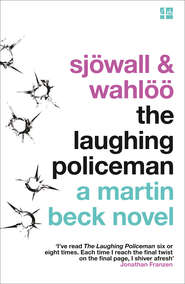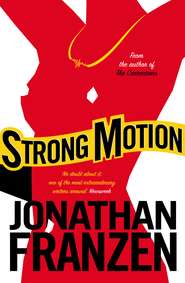По всем вопросам обращайтесь на: info@litportal.ru
(©) 2003-2024.
✖
Freedom
Настройки чтения
Размер шрифта
Высота строк
Поля
“Right, so, I won’t bother you anymore,” Walter said. “I’m sorry about Eliza. I hope she’s OK.”
The autobiographer blames nobody but herself—not Eliza, not Joyce, not Walter—for what happened next. Like every player, she had suffered through plenty of cold shooting streaks and played her share of subpar games, but even on her worst nights she’d felt ensconced in something larger—in the team, in sportsmanship, in the idea that athletics mattered—and had drawn true comfort from the encouraging cries of her teammate sisters and their jinx-breaking raillery at halftime, the variations on themes of bricks and butterfingers, the stock phrases that she herself had yelled a thousand times before. She had always wanted the ball, because the ball had always saved her, the ball was what she knew for sure she had in life, the ball had been her loyal companion in her endless girlhood summers. And all the repetitious activities that people do in church which seem vapid or phony to nonbelievers—the low fives after every single basket, the lovecluster after every drained free throw, the high fives for every teammate coming off the court, the endless shriekings of “Way to go SHAWNA!” and “Way to play smart CATHY!” and “SWISH, WOO HOO, WOO HOO!”—had become such second nature to her and made such perfect sense, as necessary aids to unthinking high performance, that it would no sooner have occurred to her to be embarrassed by them than by the fact that running up and down the court made her sweat a lot. Female athletics was not all sweetness and light, of course. Underneath the hugs were festering rivalries and moral judgments and severe impatience, Shawna blaming Patty for feeding too many outlet passes to Cathy and not enough to her, Patty seething when the slow-witted reserve center Abbie Smith turned yet another possession into a jump ball that she then could not control, Mary Jane Rorabacker nursing an eternal grudge against Cathy for not inviting her to room with her and Patty and Shawna in sophomore year despite their having starred together at St. Paul Central, every starter feeling guiltily relieved when a promising recruit and potential rival underperformed under pressure, etc., etc., etc. But competitive sports was founded on a trick of devotion, a method of credence, and once it was fully drummed into you, in middle school or high school at the latest, you didn’t have to wonder about anything important when you headed to the gym and suited up, you knew the Answer to the Question, the Answer was the Team, and any venial personal concerns were set aside.
It’s possible that Patty, in her agitation following her encounter with Walter, forgot to eat enough. Definitely something was wrong from the minute she arrived at Williams Arena. The UCLA team was huge and physical, with three starters six feet or bigger, and Coach Treadwell’s game plan was to wear them out on transition and let her smaller players, Patty especially, scurry and strike before the Bruins could get their defense set. On D the plan was to be extra aggressive and try to draw the Bruins’ two big scorers into early foul trouble. The Gophers weren’t expected to win, but if they did win they could move up into the top twenty in the unofficial national rankings—higher than they’d ever been during Patty’s tenure. And so it was a very bad night for her to lose her religion.
She experienced a peculiar weakness at her core. She had her usual range of movement in her stretches, but her muscles felt somehow inelastic. Her teammates’ loud pep grated on her nerves, and a tightness in her chest, a self-consciousness, inhibited her from shouting back at them. She succeeded in boxing out all thoughts about Eliza, but instead she found herself considering how, although her own career would be forever over after another season and a half, her middle sister could go on and be a famous actress all her life, and what a dubious investment of her own time and resources athletics had therefore been, and how blithely she’d ignored her mother’s years of hinting to this effect. None of this, it’s safe to say, was recommended as a way to be thinking before a big game.
“Just be yourself, be great,” Coach Treadwell told her. “Who’s our leader?”
“I’m our leader.”
“Louder.”
“I’m our leader.”
“Louder!”
“I’M our leader.”
If you’ve ever played team sports, you’ll know that Patty immediately felt stronger and more centered and leaderly for saying this. Funny how the trick works—the transfusion of confidence through simple words. She was fine doing warm-ups and fine shaking hands with the Bruins’ captains and feeling their appraising eyes on her, knowing they’d been told she was a big scoring threat and the Gophers’ director on offense; she stepped into her rep for success as if it were a suit of armor. Once you’re in the game, though, and you start hemorrhaging confidence, transfusion from the sidelines isn’t possible. Patty scored one basket on an easy fast-break layup, and that was basically the end of her night. As early as the second minute, she could tell from the lump in her throat that she was going to suck as she had never sucked before. Her Bruin counterpart had two inches and thirty pounds and ungodly amounts of vertical leap on her, but the problem wasn’t only physical or even mainly physical. The problem was the defeat in her heart. Instead of burning competitively with the injustice of the Bruins’ size advantage, and relentlessly pursuing the ball, as Coach had told her to do, she felt defeated by injustice: felt sorry for herself. The Bruins tried out a full-court press and discovered that it worked spectacularly. Shawna rebounded and passed Patty the ball, but she got trapped in the corner and gave it up. She got the ball again and fell out of bounds. She got the ball again and faked it directly into the hands of a defender, as if making a little present. Coach called a time-out and told her to station herself farther up the court on transition; but Bruins were waiting for her there. A long pass went off her hands and into the seats. Fighting the lump in her throat, trying to get mad, she got a foul for charging. She had no spring in her jump shot. She turned the ball over twice in the paint, and Coach took her out to have a word.
“Where’s my girl? Where’s my leader?”
“I don’t have it tonight.”
“You absolutely have it, you just have to find it. It’s in there. Find it.”
“OK.”
“Scream at me. Let it out.”
Patty shook her head. “I don’t want to let it out.”
Coach, crouching, peered up into her face, and Patty, with great effort of will, forced herself to meet her eyes.
“Who’s our leader?”
“I am.”
“Shout it.”
“I can’t.”
“You want me to bench you? Is that what you want?”
“No!”
“Then get out there. We need you. Whatever it is, we can talk about it later. OK?”
“OK.”
This new transfusion poured straight into the hemorrhage without circulating even once through Patty’s body. For the sake of her teammates, she stayed in the game, but she reverted to her old habit of being selfless, of following plays instead of leading them, of passing instead of shooting, and then to her even older habit of lingering around the perimeter and taking long jumpers, some of which might have fallen on another night, but not that night. How hard it is to hide on a basketball court! Patty got beaten on defense again and again, and each defeat seemed to make the next one more likely. What she was feeling became a lot more familiar to her later in her life, when she made the acquaintance of serious depression, but on that February night it was a hideous novelty to feel the game swirling around her, totally out of her control, and to intuit that the significance of everything that happened, every approach and retreat of the ball, every heavy thud of her feet on the floor, every new moment of trying to guard a fully focused and determined Bruin, every teammate’s hearty halftime whap on the shoulder, was her own badness and the emptiness of her future and the futility of struggle.
Coach finally sat her down for good midway through the second half, with the Gophers trailing by 25. She revived a little as soon as she was safely benched. She found her voice and exhorted her teammates and high-fived them like an eager rookie, reveling in the abasement of being reduced to a cheerleader in a game she should have starred in, embracing the shame of being too-delicately consoled by her pitying teammates. She felt she fully deserved to be abased and shamed like this, after how she’d stunk. Wallowing in this shit was the best she’d felt all day.
Afterward, in the locker room, she endured Coach’s sermon with closed ears and then sat on a bench and sobbed for half an hour. Her friends were considerate enough to let her just do this.
In her down parka and her Gophers stocking cap, she went to Northrop Auditorium, hoping the Blackmun lecture might somehow still be going on there, but the building was dark and locked. She thought of returning to her hall and calling Walter, but she realized that what she really wanted now was to break training and get trashed on wine. She walked through snowy streets to Eliza’s apartment, and here she realized that what she really wanted was to scream abusive things at her friend.
Eliza, on the intercom, objected that it was late and she was tired.
“No, you have to let me up,” Patty said. “This is non-optional.”
Eliza let her in and then lay down on her sofa. She was wearing pajamas and listening to some kind of throbbing jazz. The air was thick with lethargy and old smoke. Patty stood by the sofa, bundled in her parka, snow melting off her sneakers, and watched how slowly Eliza was breathing and how long it took for the impulse to speak to be effectuated—various random facial muscle movements gradually becoming a little less random and finally gathering into a murmured question: “How was your game.”
Patty didn’t answer. After a while, it became apparent that Eliza had forgotten about her.
There didn’t seem to be much point in screaming abusive things at her right now, so Patty ransacked the apartment instead. The drug stuff came to light immediately, right on the floor at the head of the sofa—Eliza had simply dropped a throw pillow over it. At the bottom of a nest of poetry journals and music magazines on Eliza’s desk was the blue three-ring binder. As far as Patty could tell, nothing had been added to it since the summer. She sifted through Eliza’s papers and bills, looking for something medical, but didn’t find anything. The jazz record was playing on repeat. Patty turned it off and sat down on the coffee table with the scrapbook and the drug stuff on the floor in front of her. “Wake up,” she said.
Eliza squeezed her eyes shut tighter.
Patty shoved her leg. “Wake up.”
“I need a cigarette. The chemo really knocked me out.”
Patty pulled her upright by the shoulder.
“Hey,” Eliza said, with a murky smile. “Nice to see you.”
“I don’t want to be your friend anymore,” Patty said. “I don’t want to see you anymore.”
“Why not?”
“I just don’t.”
Eliza closed her eyes and shook her head. “I need you to help me,” she said. “I’ve been taking drugs because of the pain. Because of the cancer. I wanted to tell you. But I was too embarrassed.” She tilted sideways and lay back down.
“You don’t have cancer,” Patty said. “That’s just a lie you made up because you have some crazy idea about me.”
“No, I have leukemia. I definitely have leukemia.”
“I came over to tell you in person, as a courtesy. But now I’m going to leave.”
“No. You have to stay. I have a drug problem you have to help me with.”
“I can’t help you. You’ll have to go to your parents.”
There was a long silence. “Get me a cigarette,” Eliza said.
















